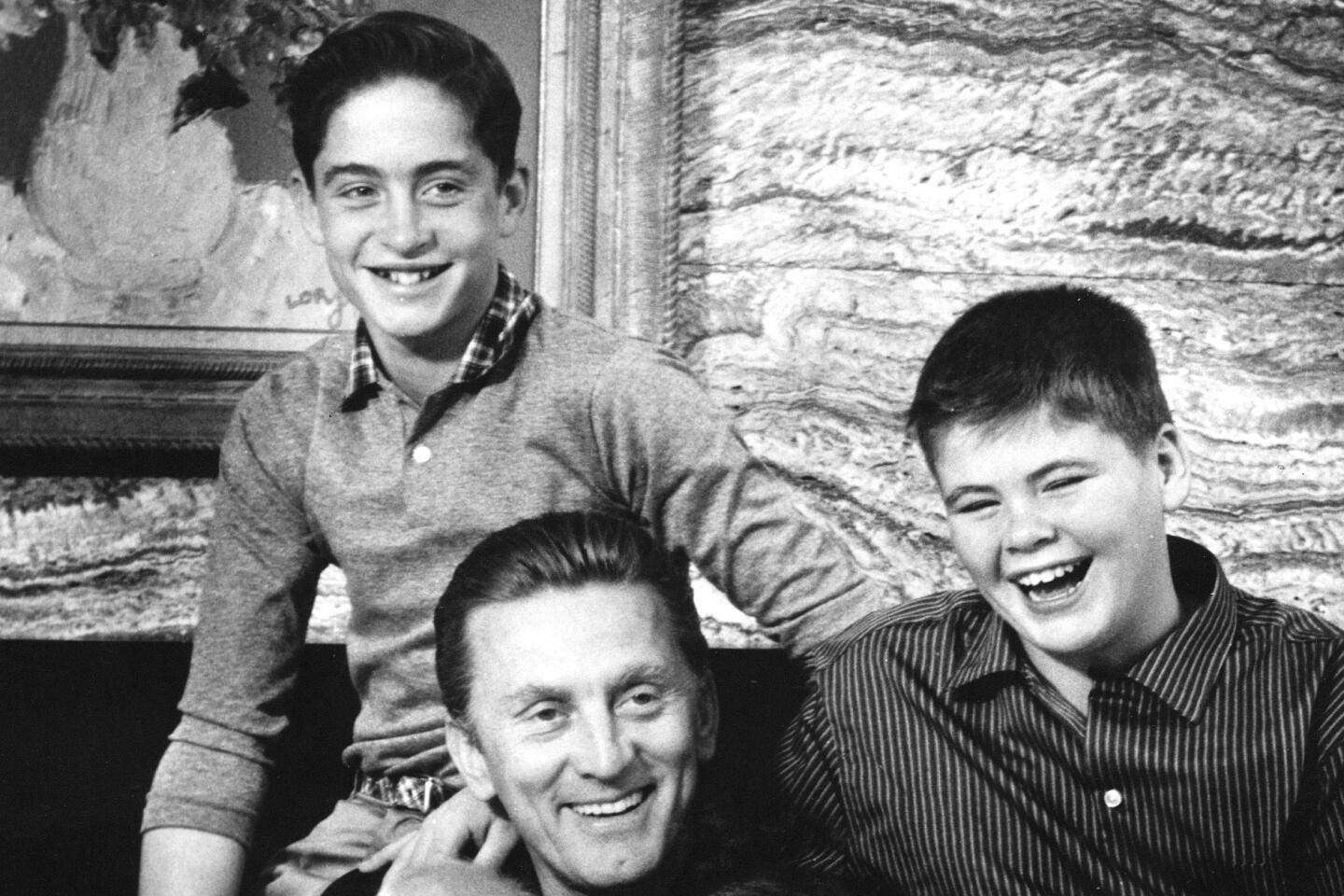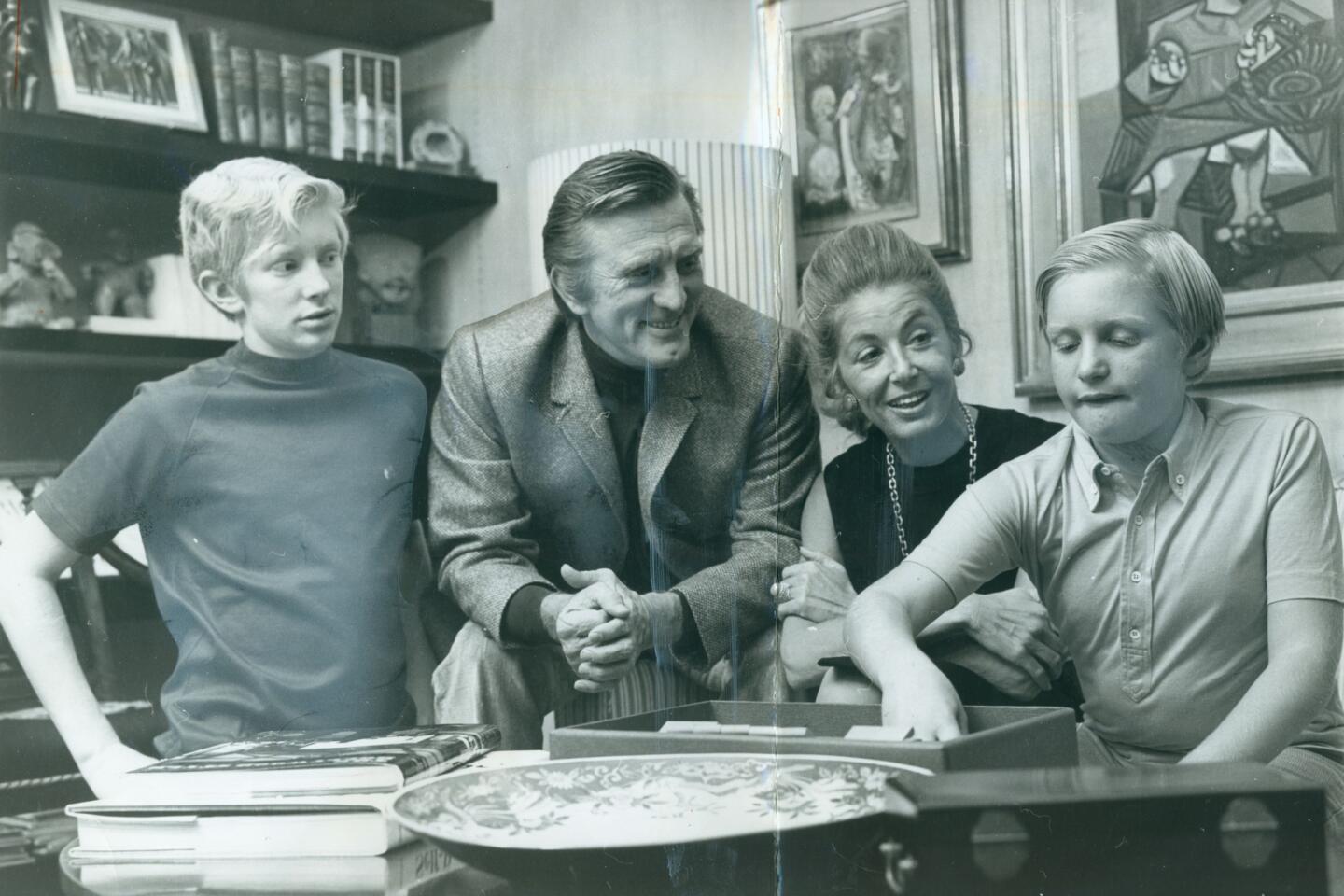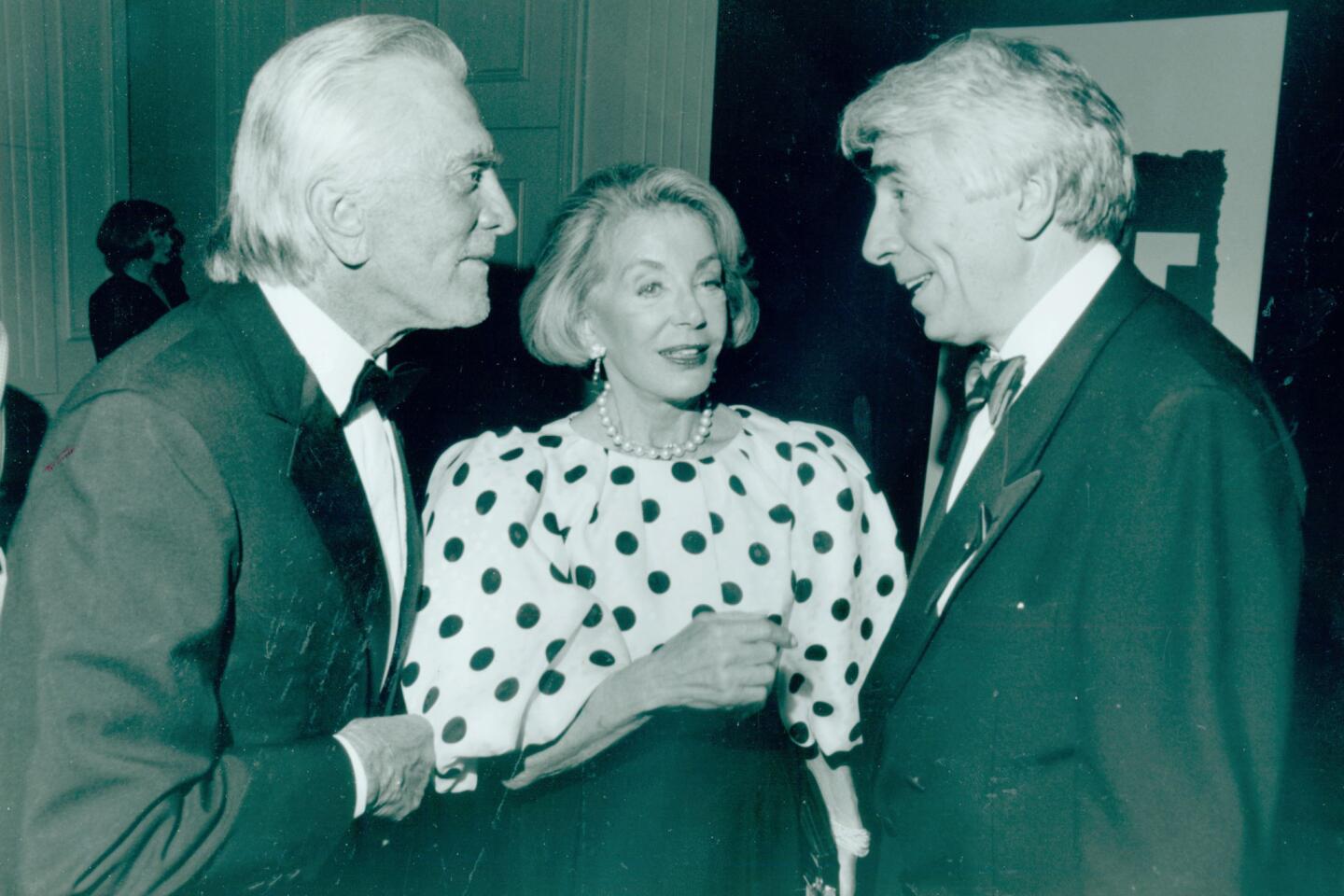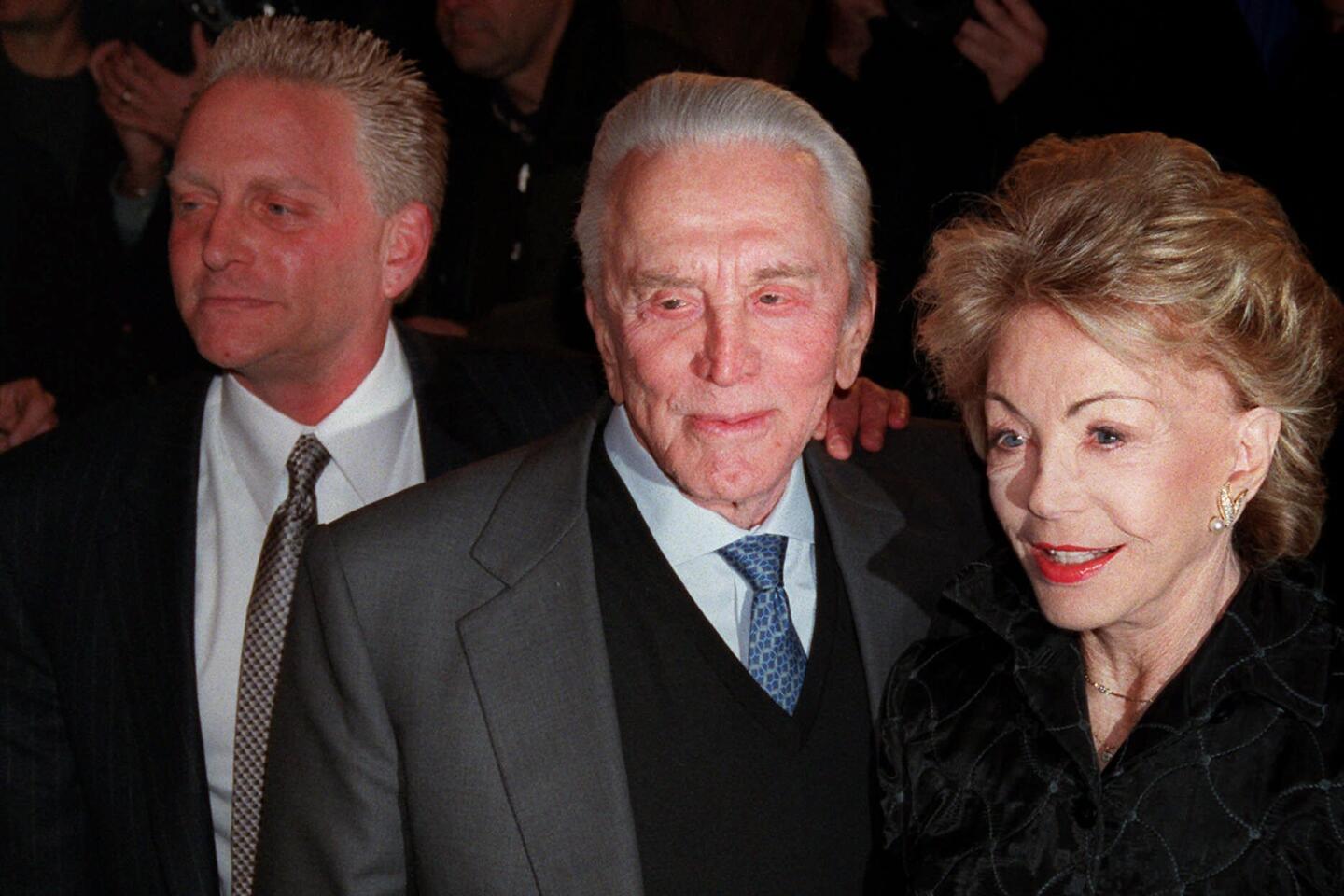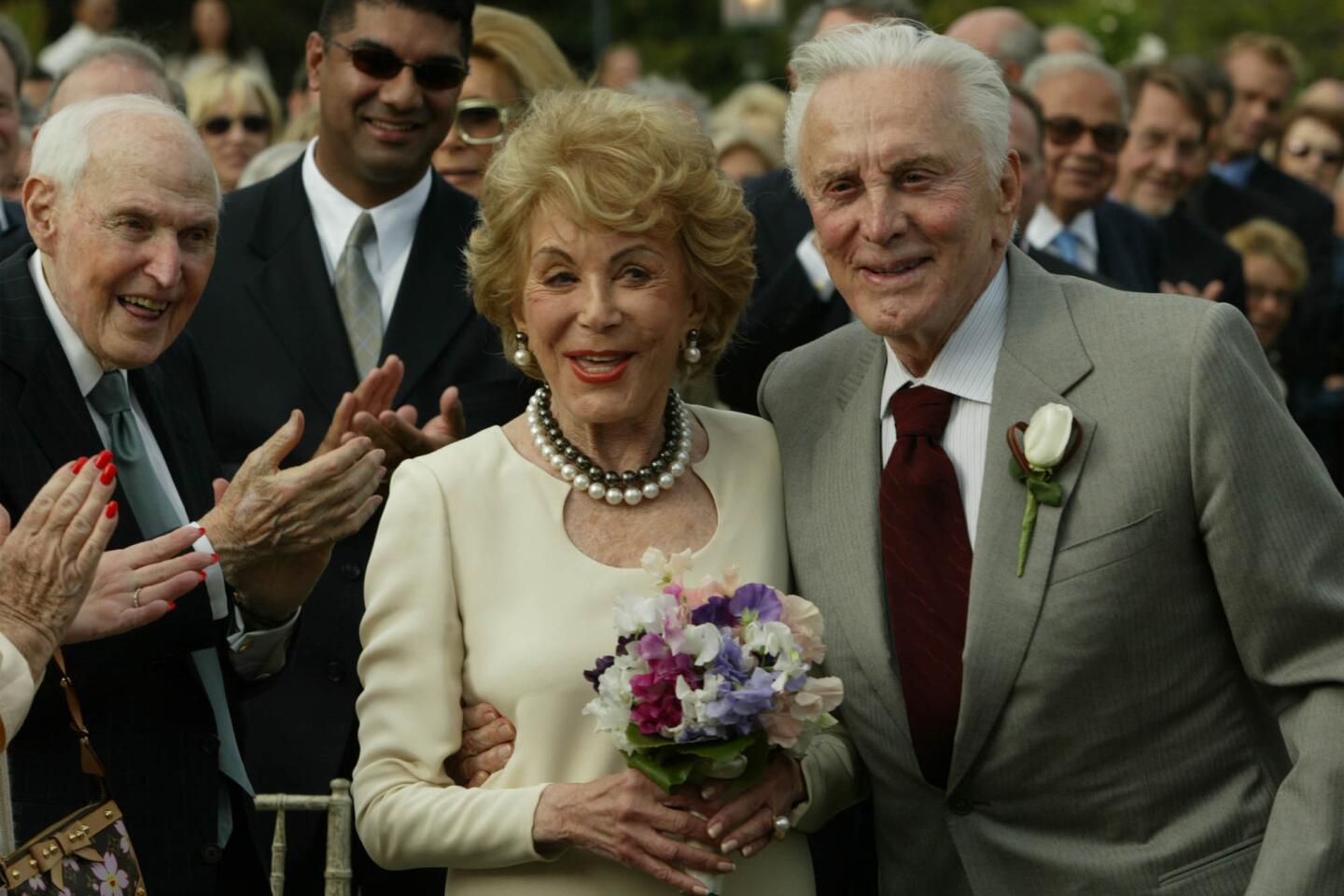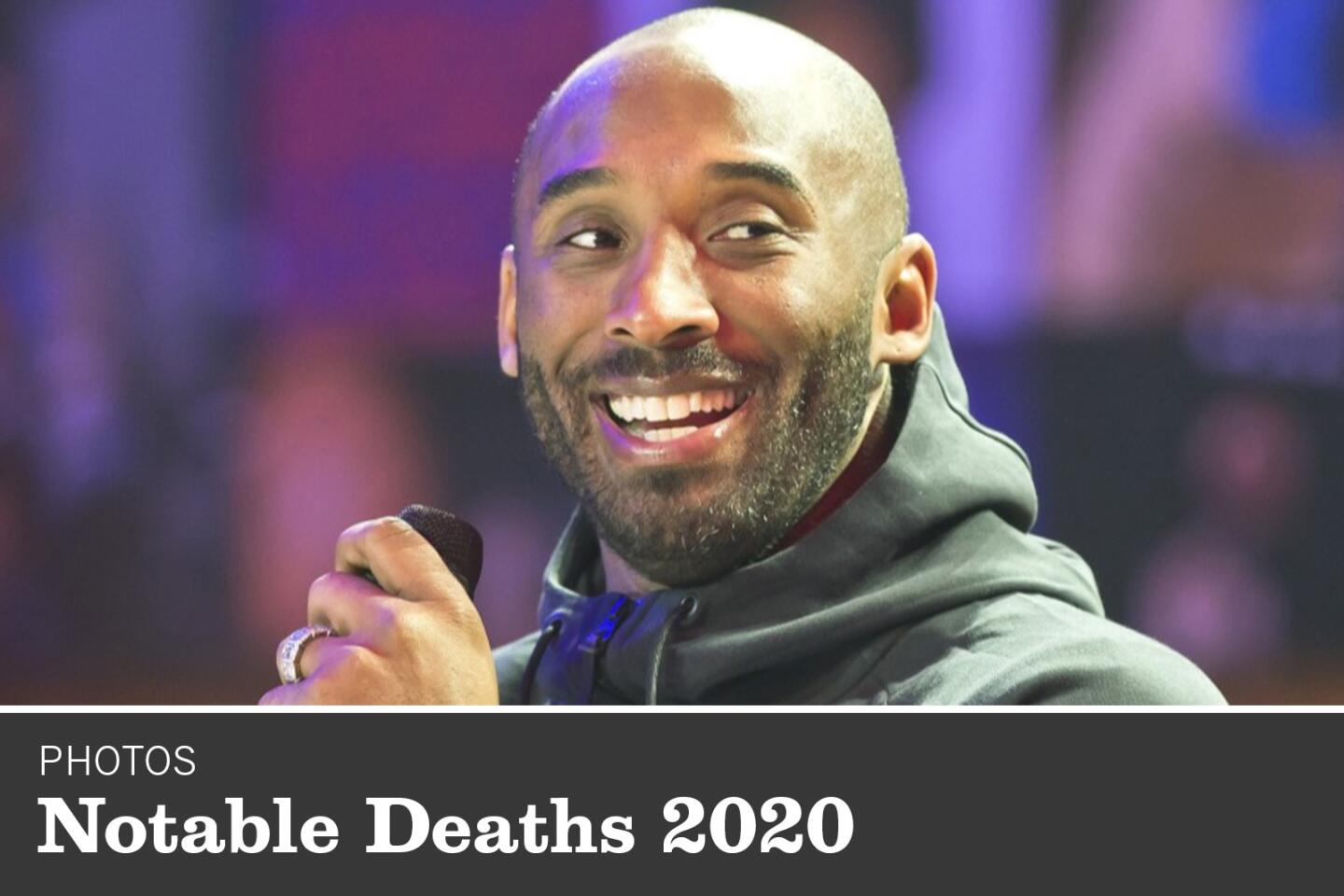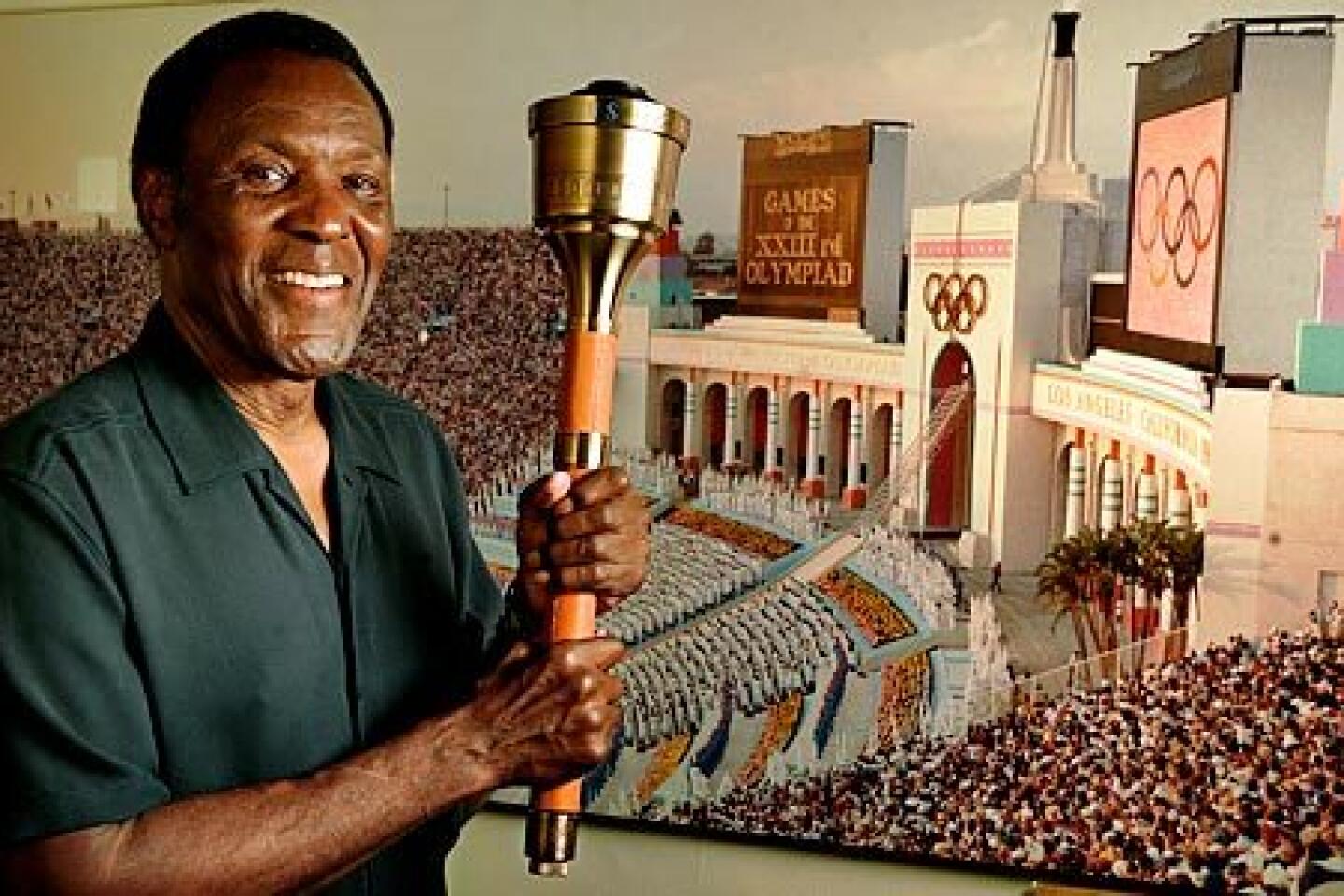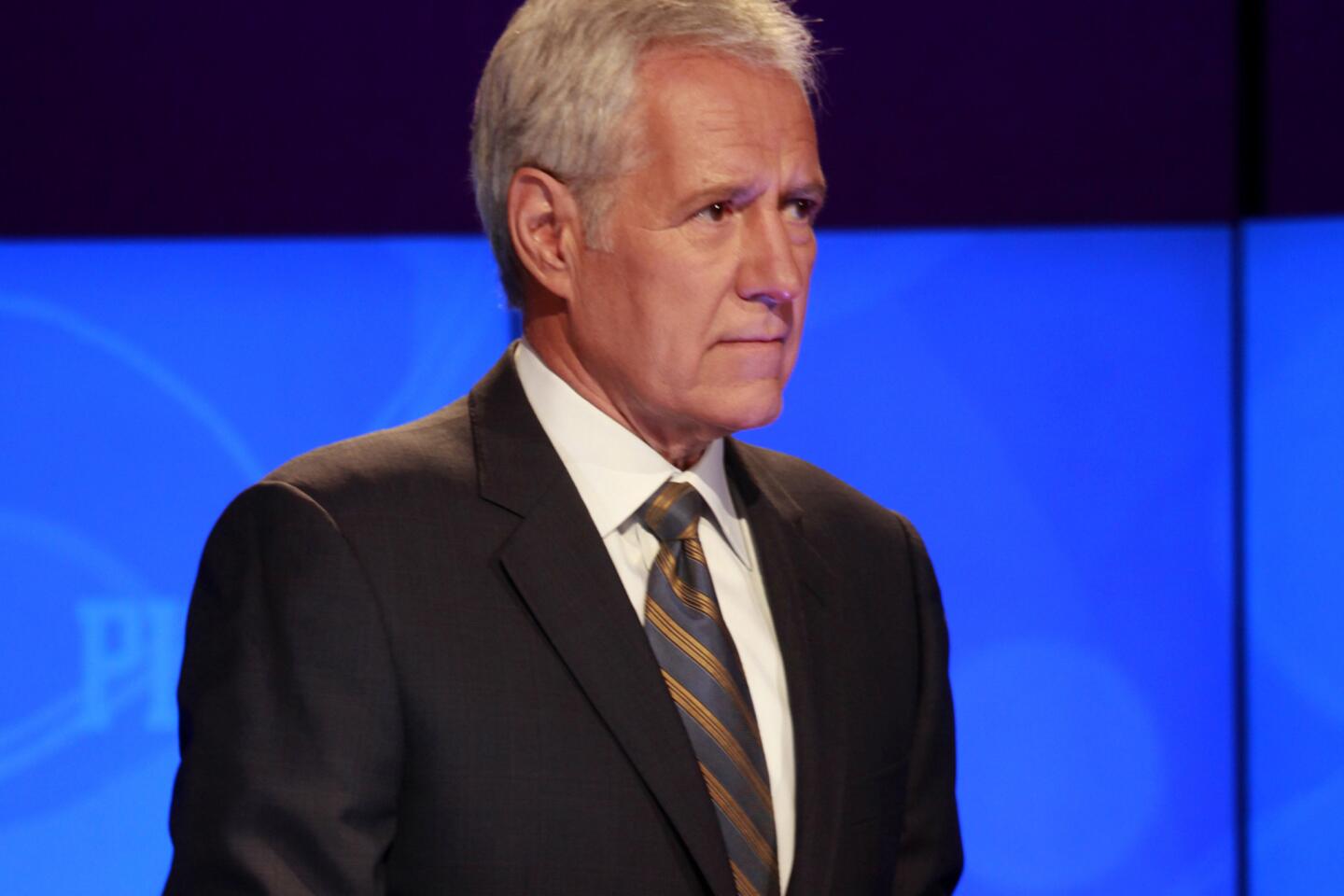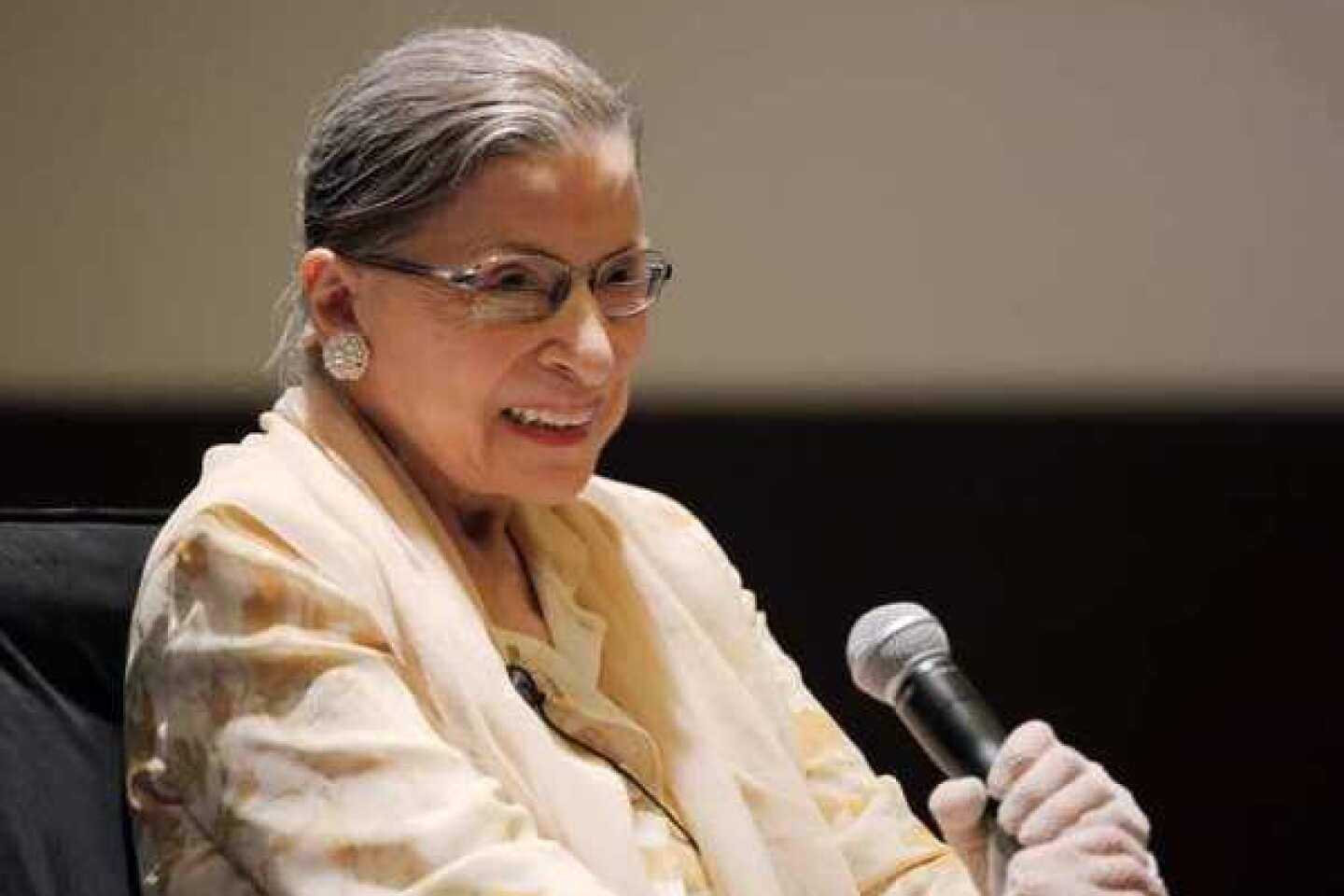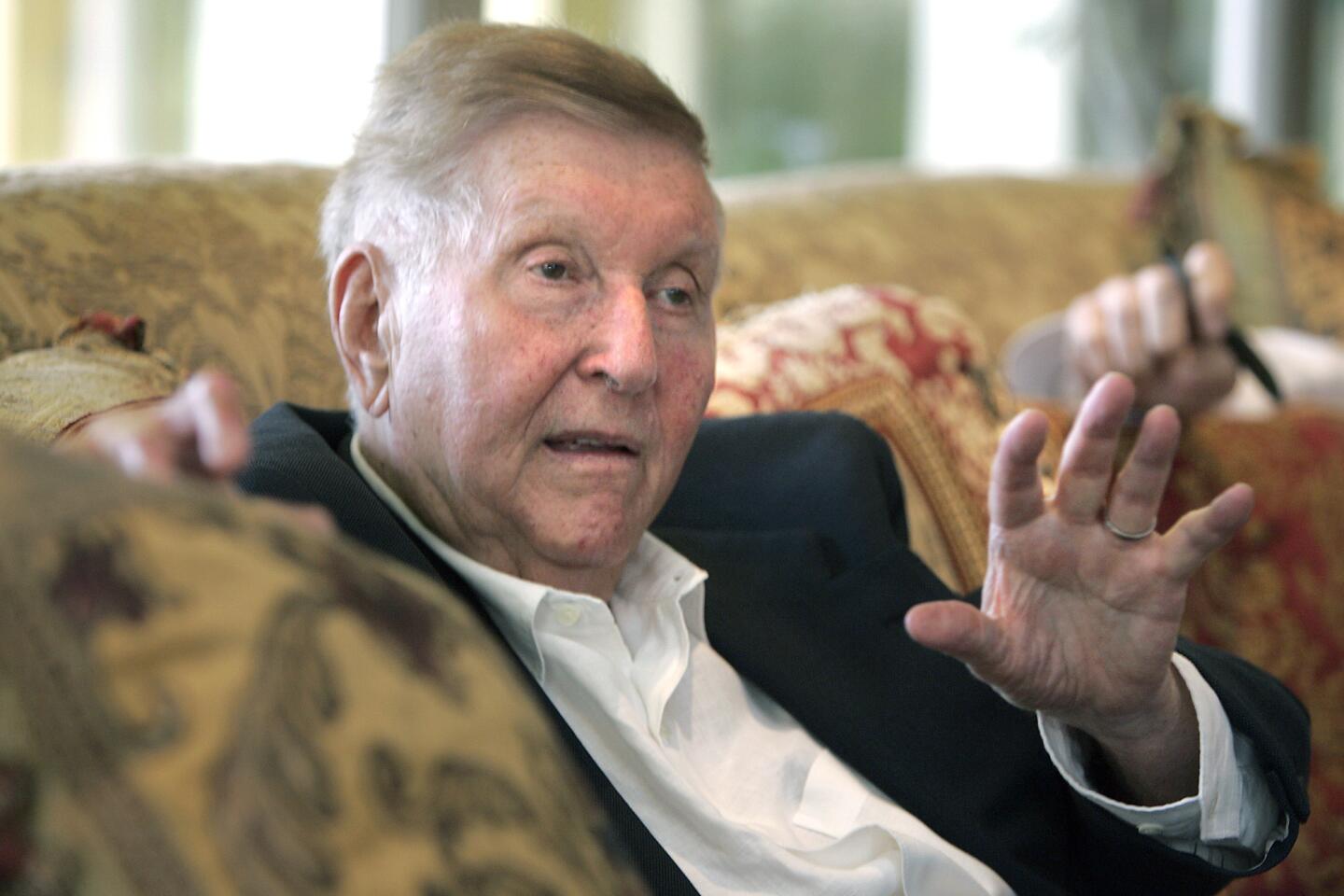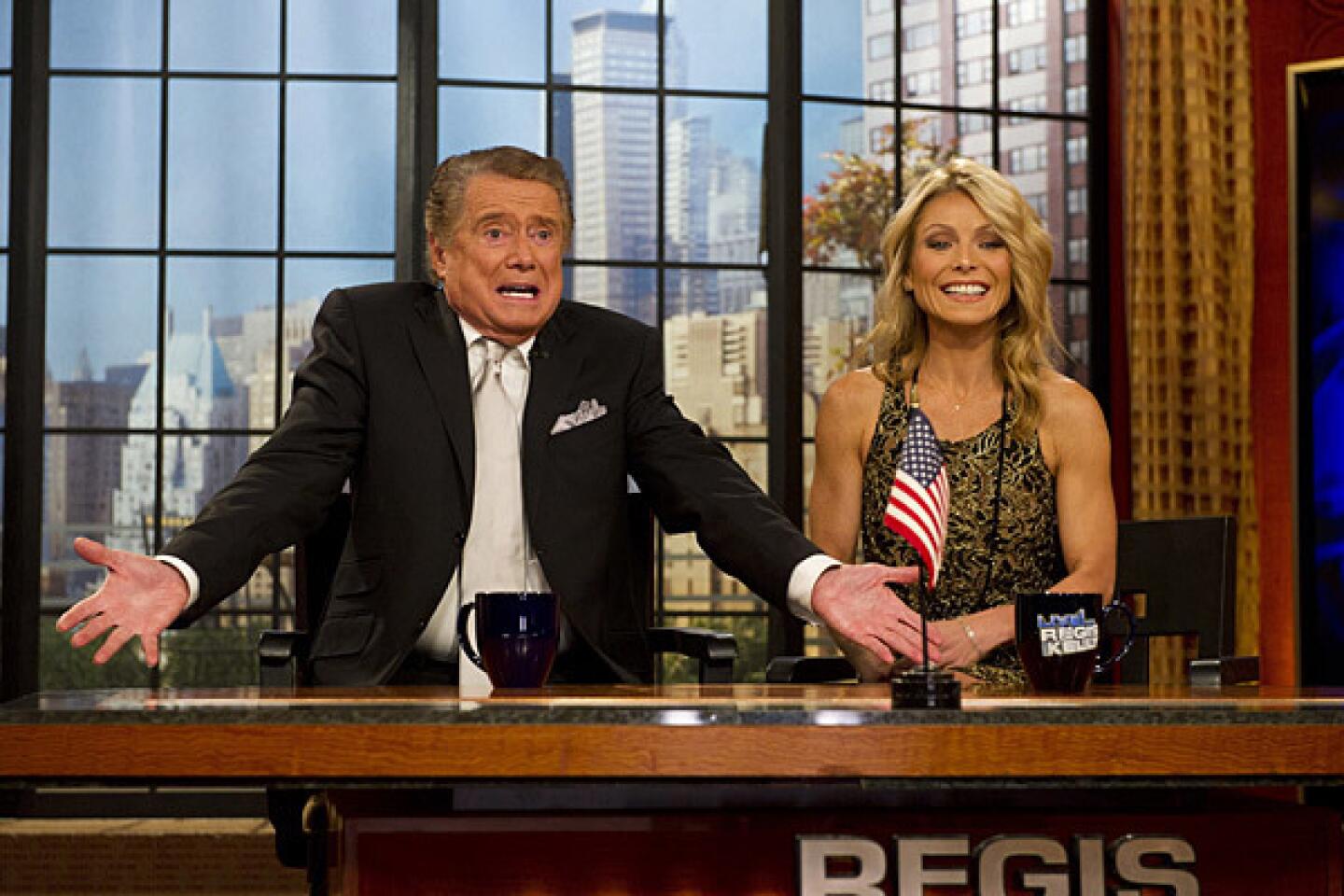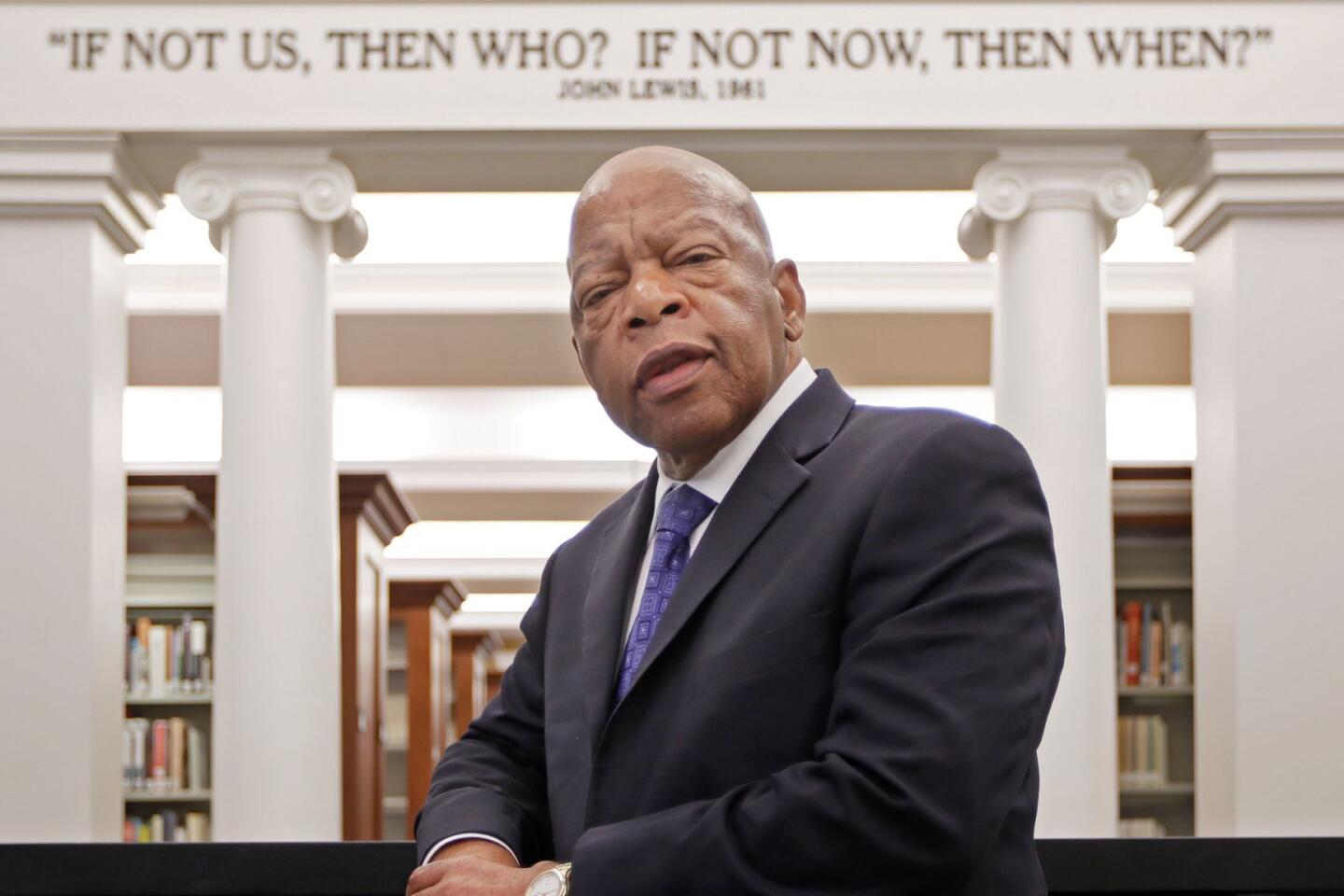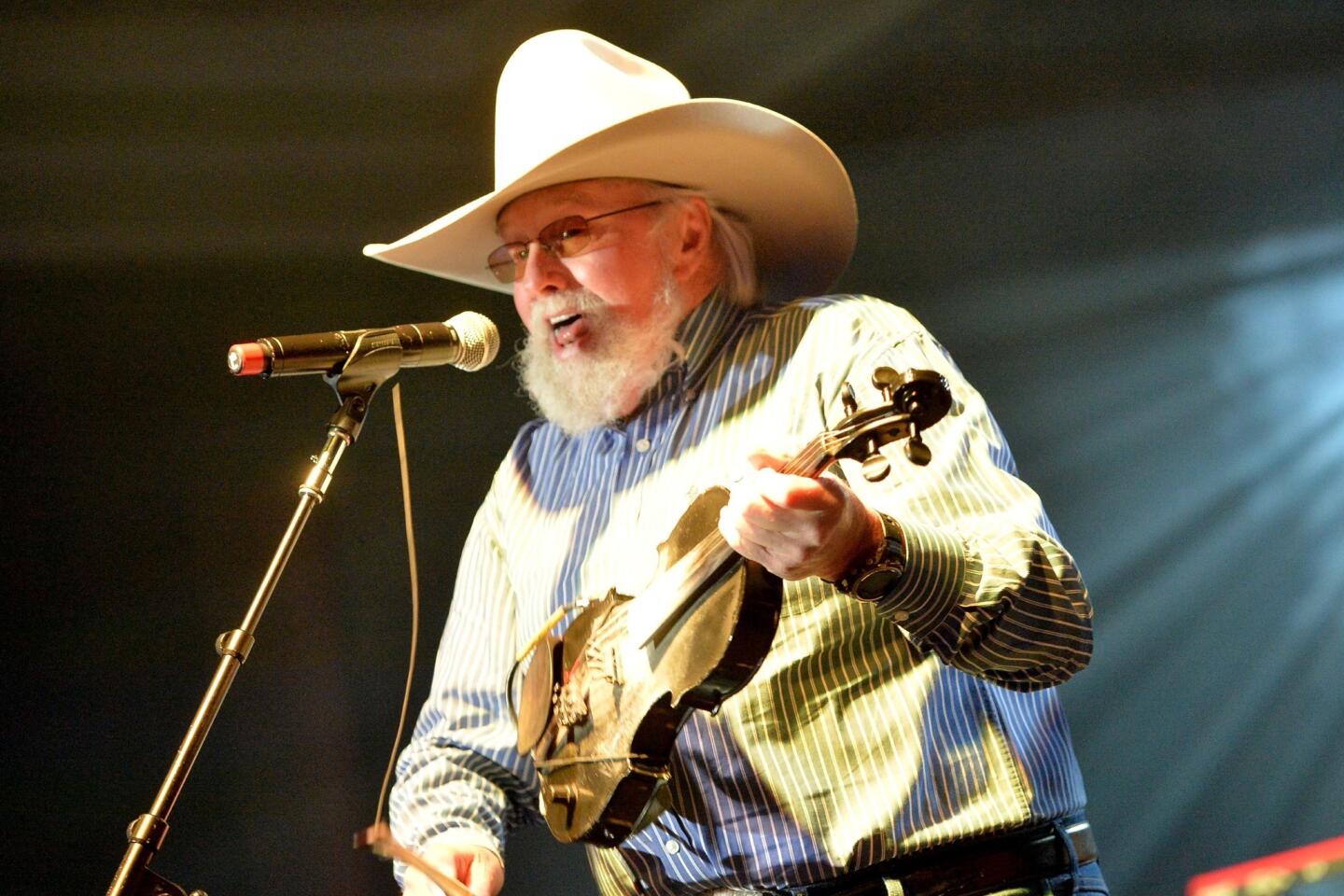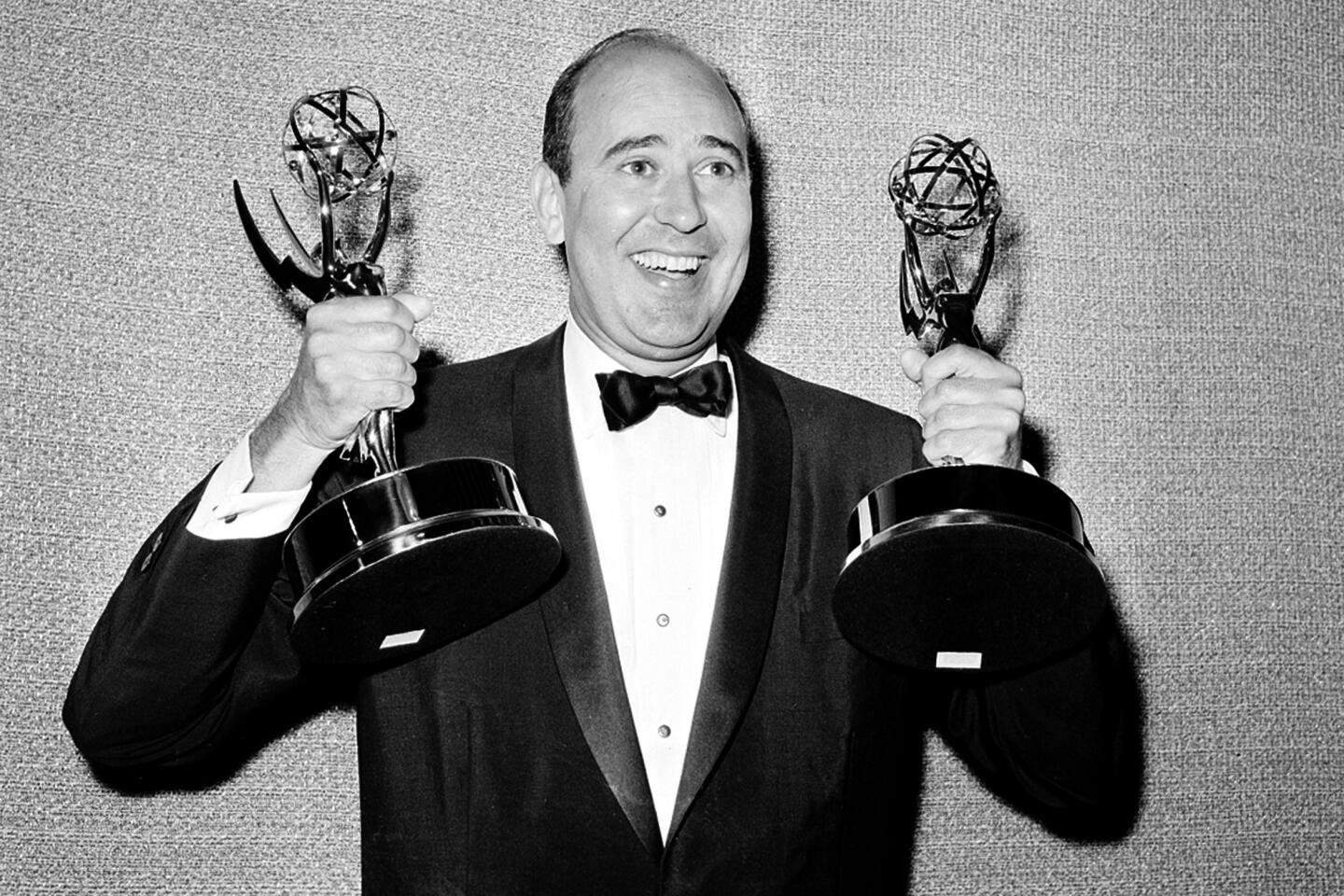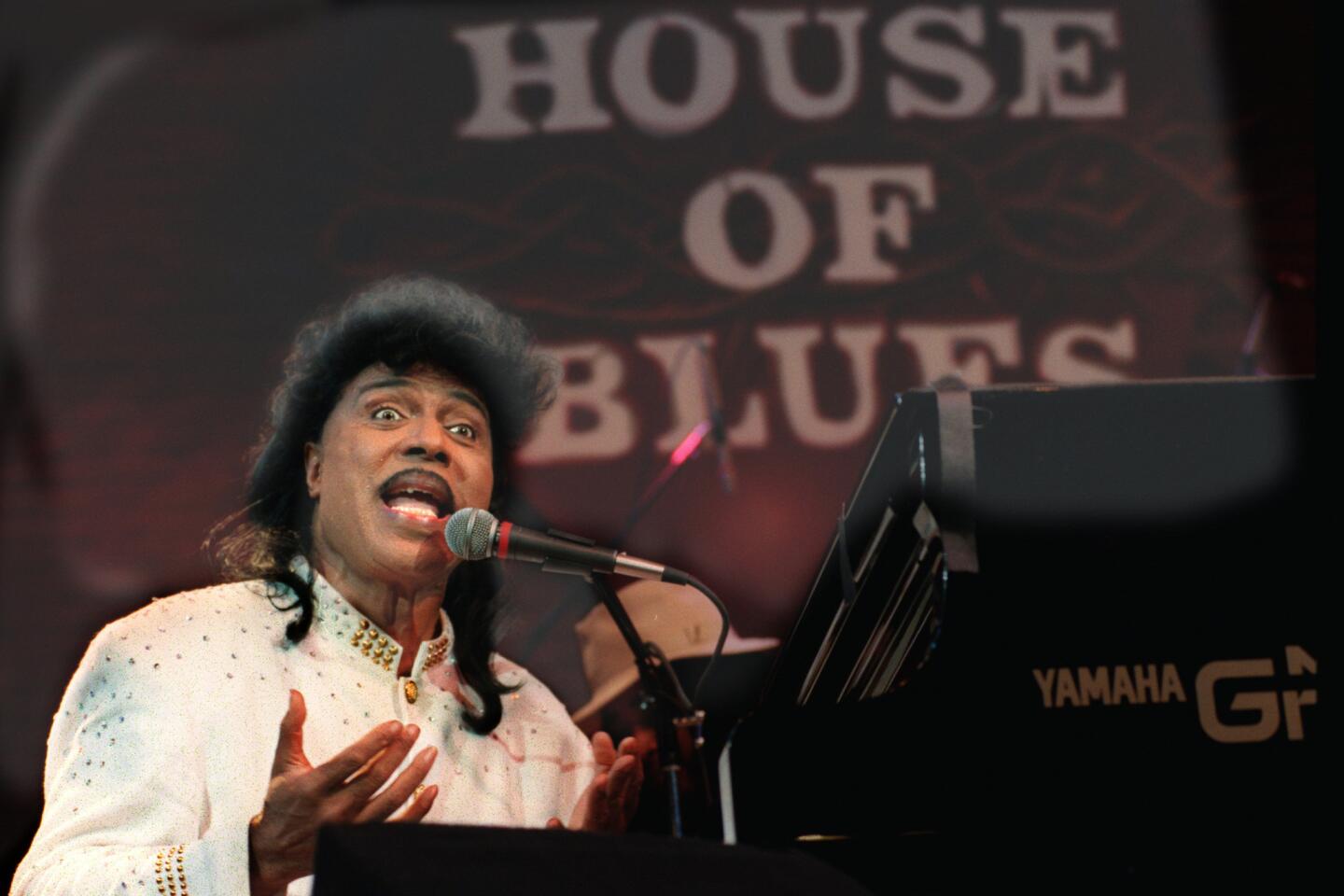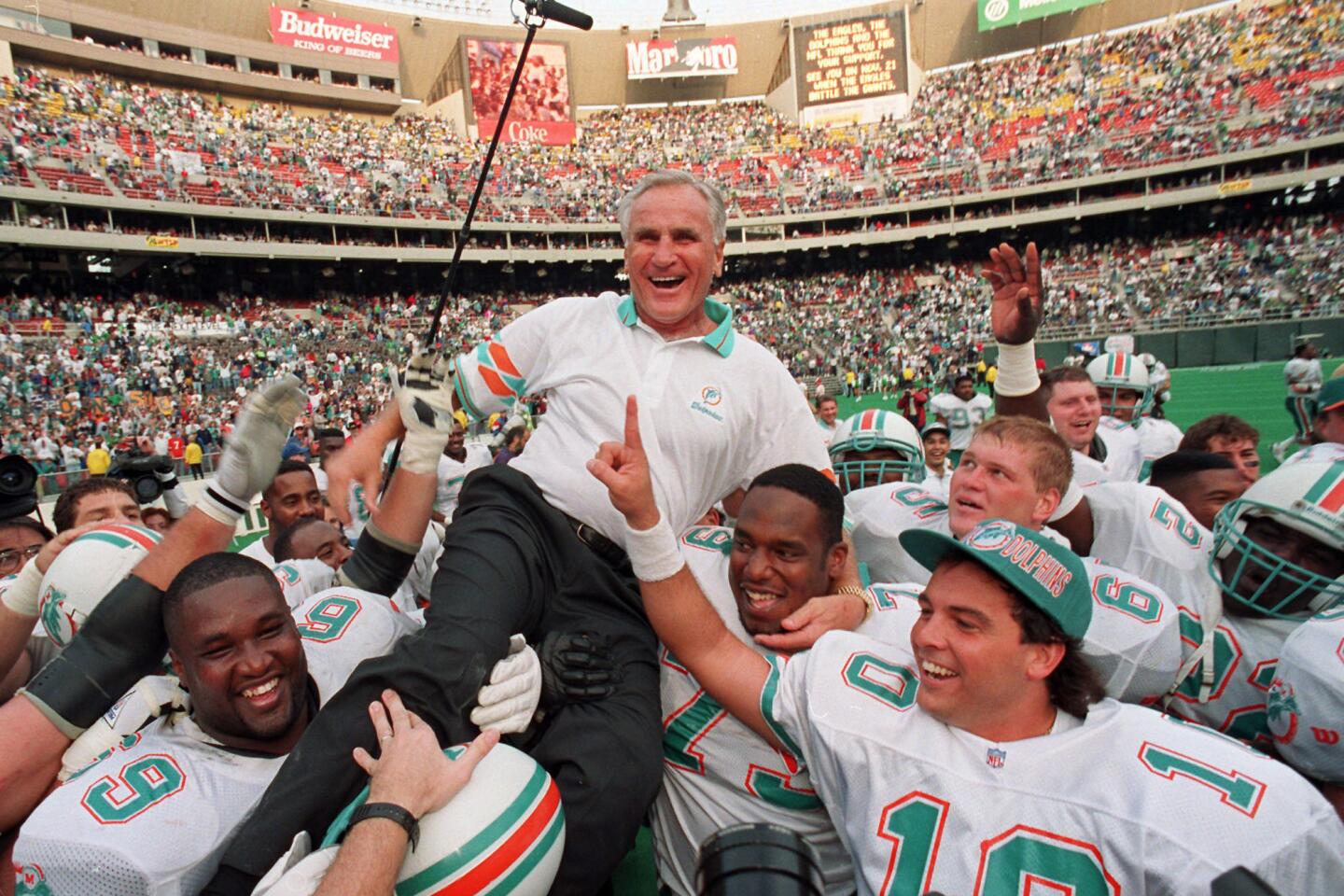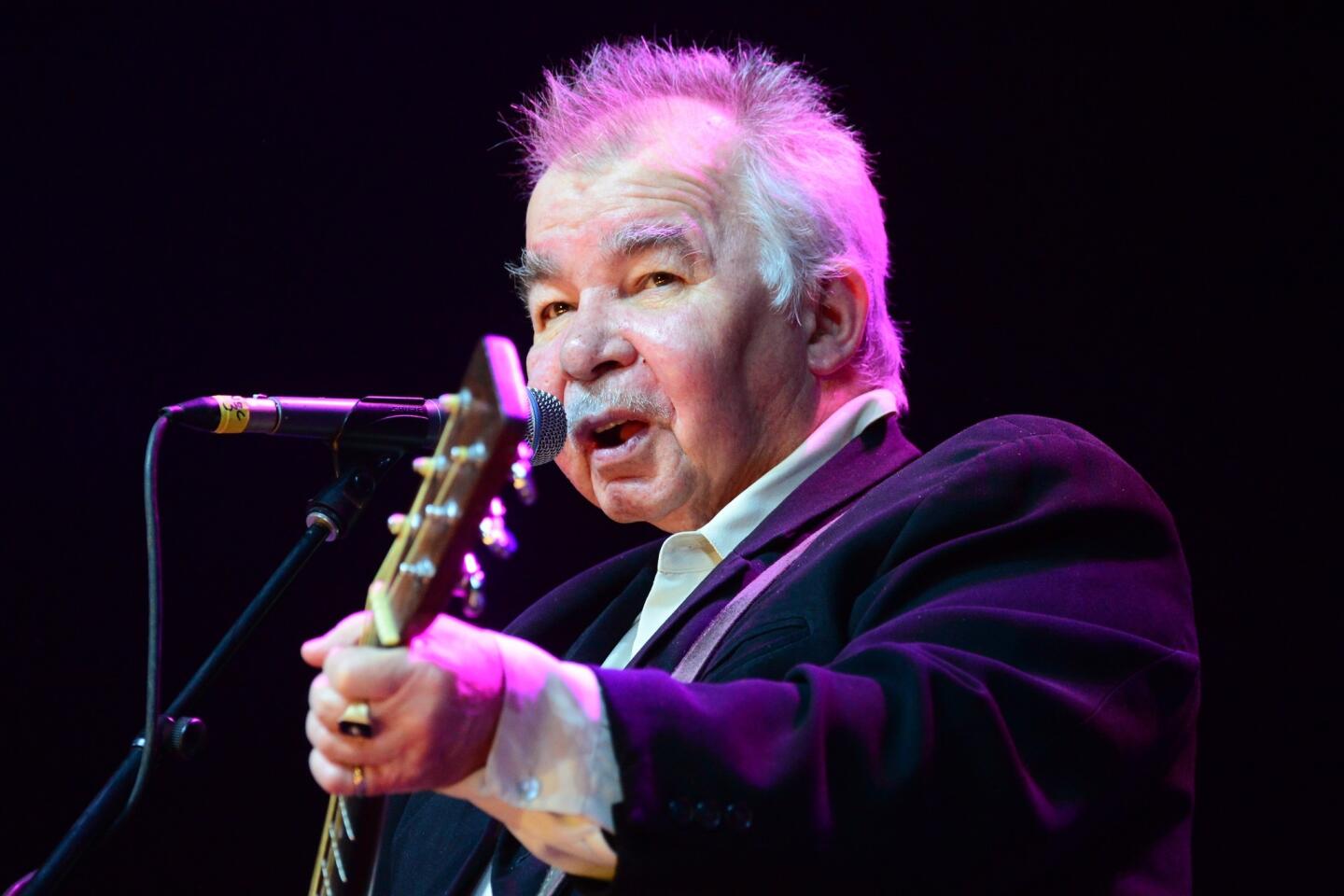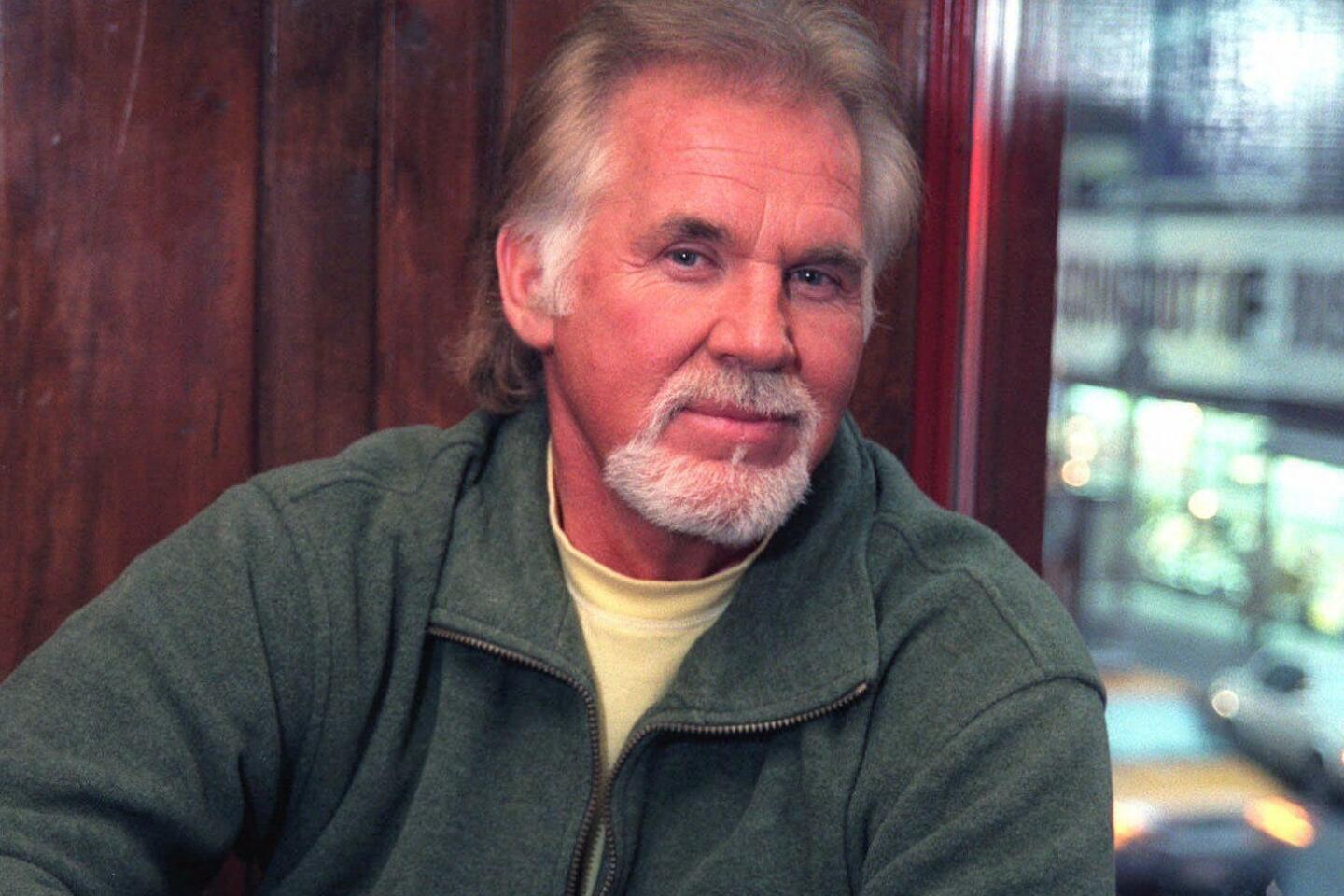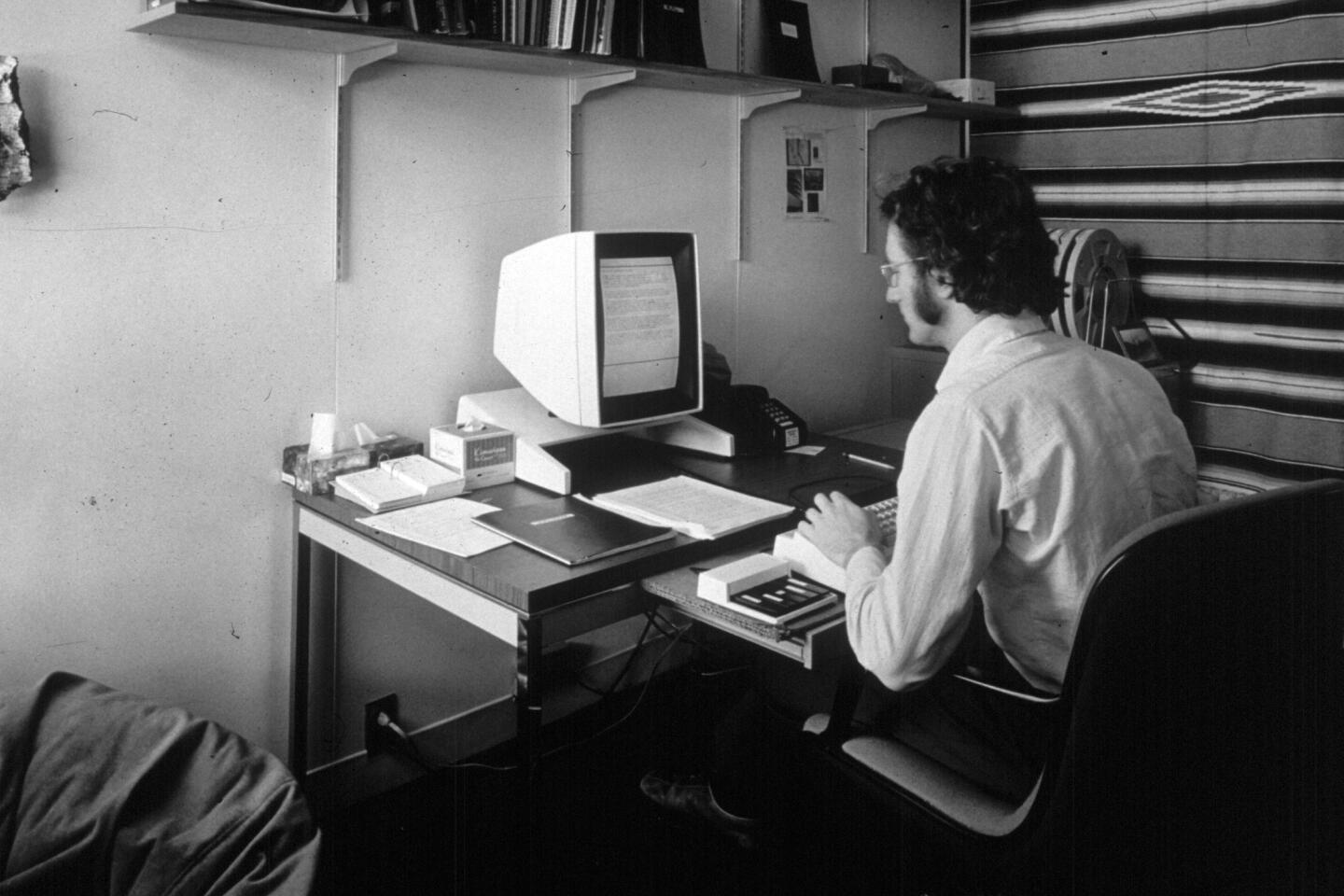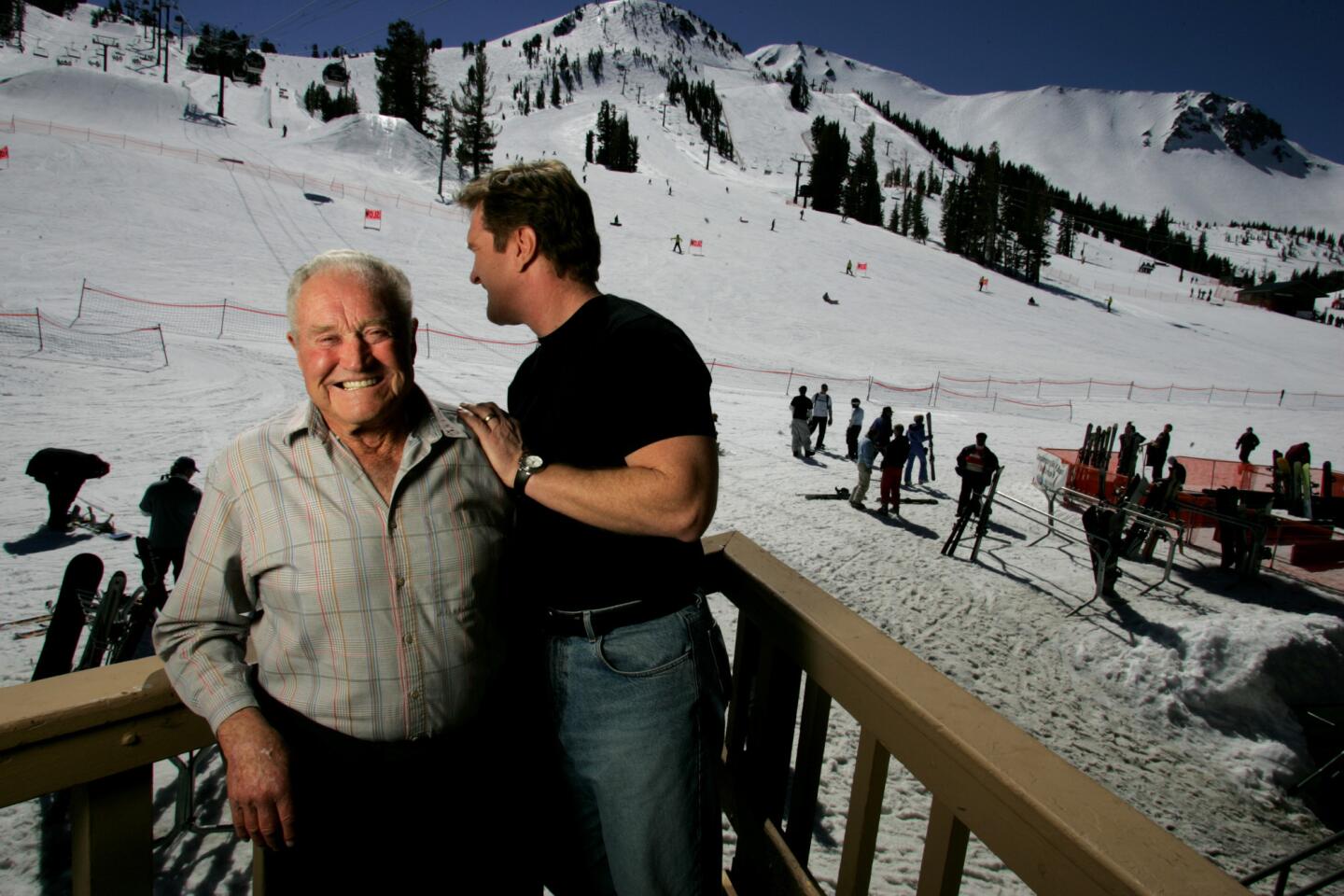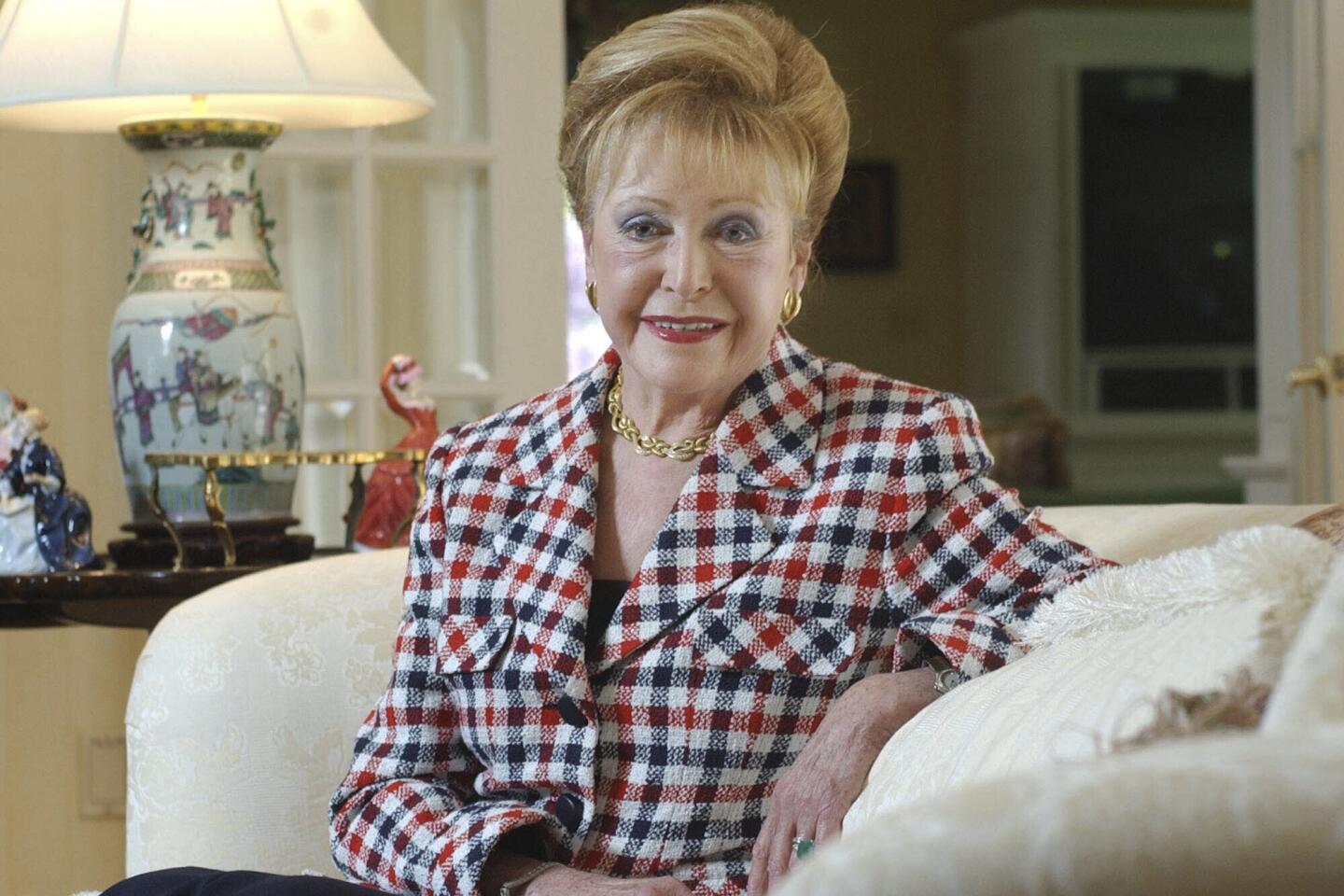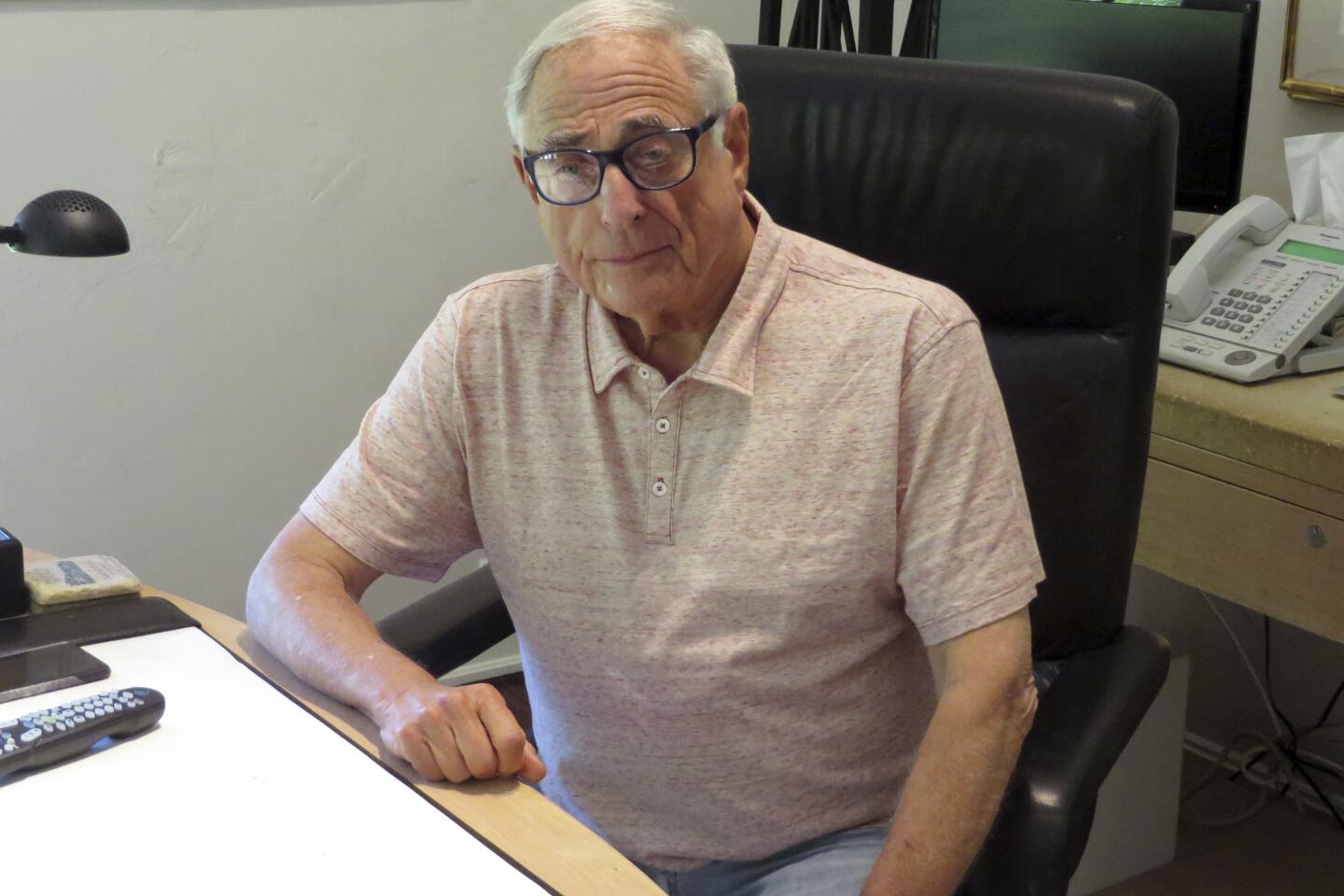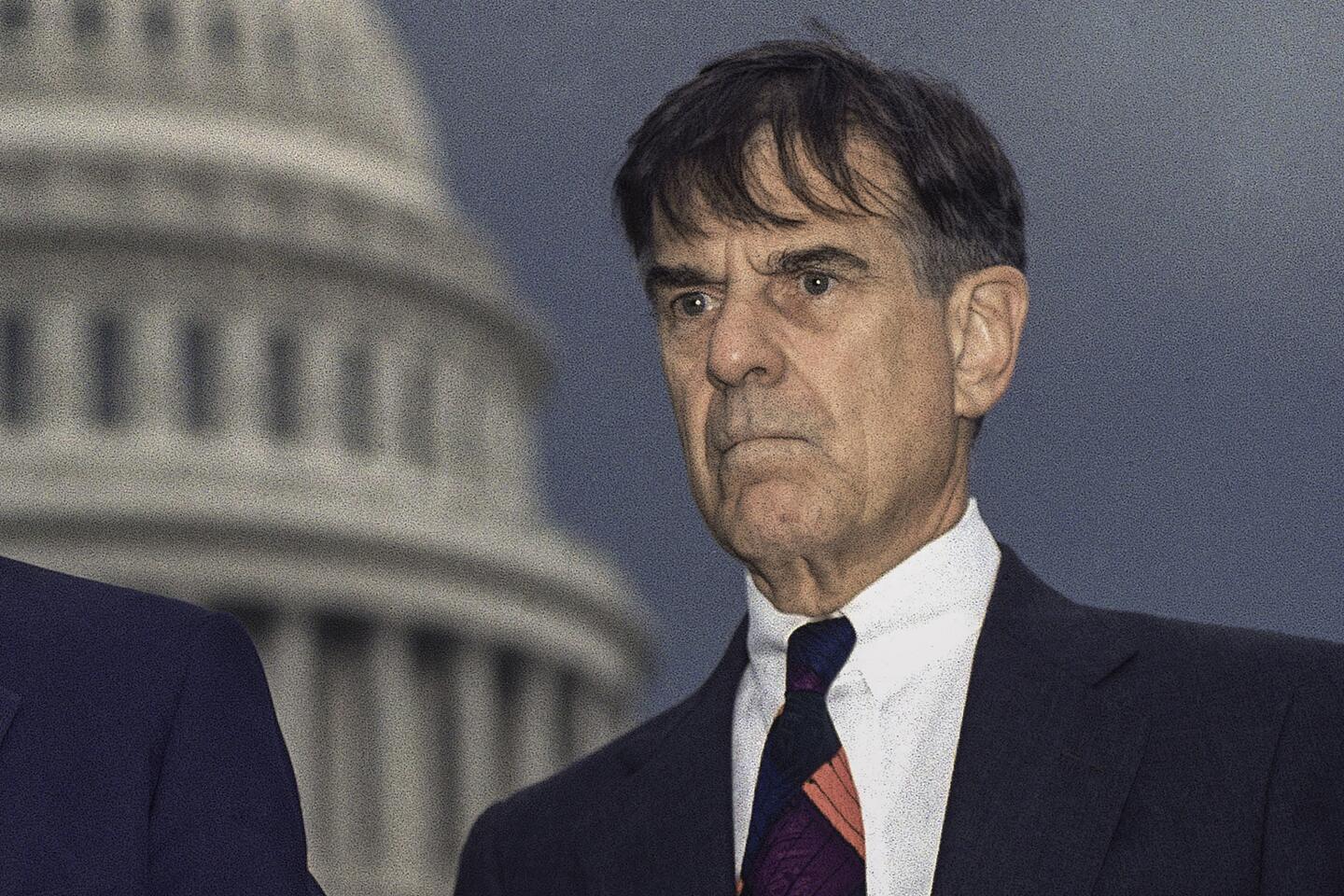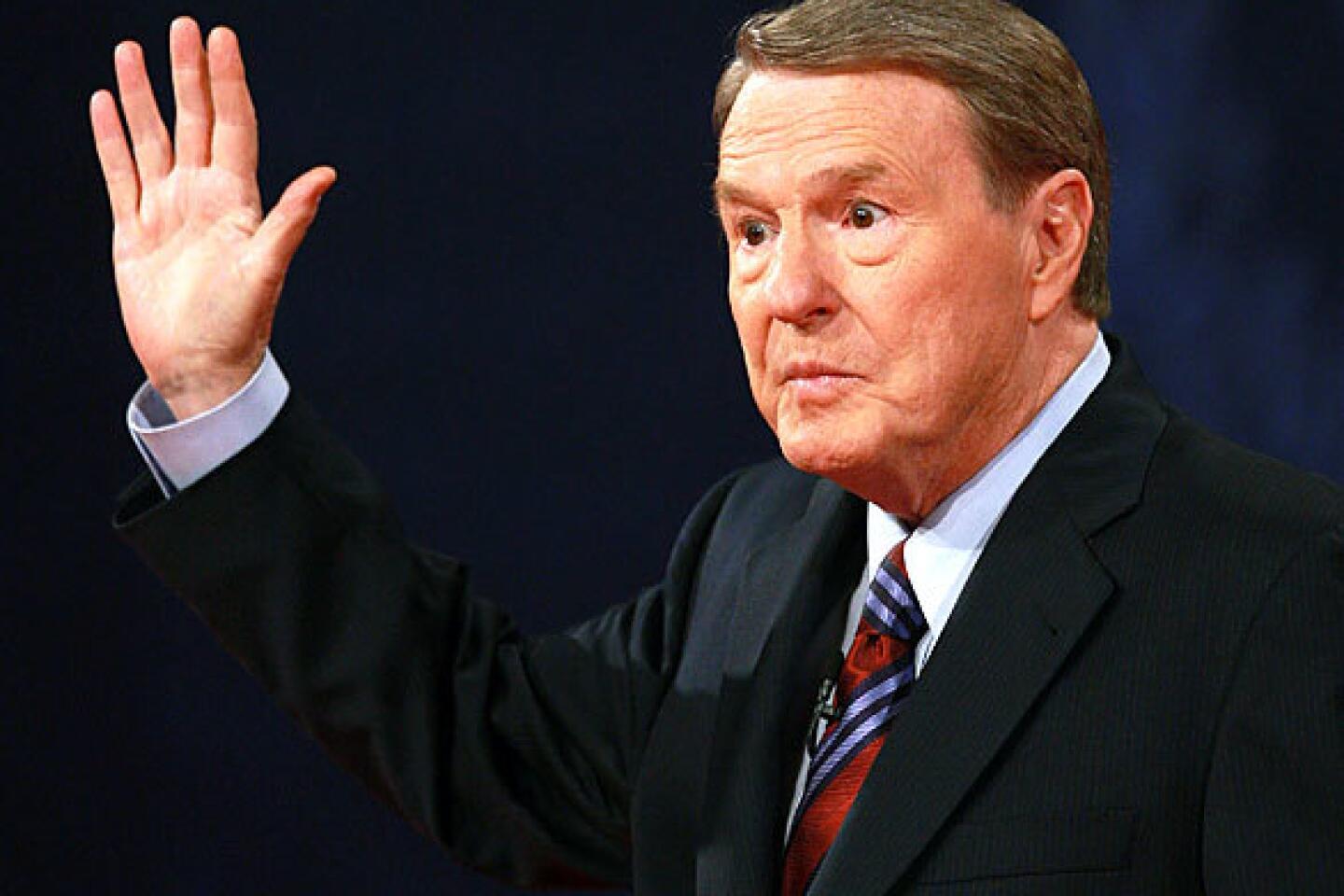Kirk Douglas dead at 103; ‘Spartacus’ star helped end Hollywood blacklist

- Share via
Kirk Douglas, the dimple-chinned screen icon who was known for bringing an explosive, clenched-jawed intensity to a memorable array of heroes and heels in films such as “Spartacus” and “Champion” and for playing an off-screen role as a maverick independent producer who helped end the Hollywood blacklist, has died. He was 103.
Douglas, who continued to act occasionally after overcoming a stroke in 1996 that impaired his speech, died Wednesday in Los Angeles, surrounded by family, his son Michael said in a statement.
“To the world he was a legend, an actor from the golden age of movies who lived well into his golden years, a humanitarian whose commitment to justice and the causes he believed in set a standard for all of us to aspire to,” Michael Douglas said on Instagram.
“Kirk’s life was well lived, and he leaves a legacy in film that will endure for generations to come, and a history as a renowned philanthropist who worked to aid the public and bring peace to the planet.
The stage-trained Douglas earned the first Oscar nomination of his long acting career playing one of the post-World War II era’s antiheroes: the ruthlessly ambitious boxer in the 1949 drama “Champion.”
Douglas later received Oscar nominations for his performances as an opportunistic movie mogul in the 1952 drama “The Bad and the Beautiful” and as tormented artist Vincent van Gogh in the 1956 biographical drama “Lust for Life.”
“I have never felt any need to project a certain image as an actor,” Douglas wrote in “The Ragman’s Son,” his bestselling 1988 autobiography. “I like a role that is stimulating, challenging, interesting to play. That’s why I’m often attracted to characters that aren’t likable.”
Golden Age actor Kirk Douglas imposed his unstoppable willpower and drive onto a variety of film characters, including Van Gogh and Spartacus.
Never a fan of the Hollywood studio system — he likened the standard seven-year studio contract to slavery — Douglas launched his own independent production company in 1955.
Named after Douglas’ immigrant mother, the Bryna Co. produced a number of films in which Douglas starred, including director Stanley Kubrick’s landmark anti-war film, “Paths of Glory,” “The Vikings” and “Spartacus.” Douglas’ Joel Productions, named after one of his sons, also produced “Seven Days in May” and “Lonely Are the Brave.”
As executive producer of “Spartacus,” Douglas helped end the Hollywood blacklist by giving blacklisted writer Dalton Trumbo screen credit under his own name for his work on the 1960 Roman-Empire epic that starred Douglas as the gladiator-trained slave revolt leader.
In acknowledgment of a career that spanned more than 60 years and more than 80 films, Douglas was honored late in life with numerous major awards: The American Film Institute’s Life Achievement Award, a Kennedy Center Honor, a Screen Actors Guild Life Achievement Award and an honorary Oscar for his “50 years as a creative and moral force in the motion picture community.”
“He’s one of the legendary figures of his era,” said film historian Jeanine Basinger, chair of the film studies department at Wesleyan University, who first saw Douglas on screen as a young moviegoer in the late 1940s.
“I immediately focused on him because he was different,” Basinger told The Times. “He wasn’t a traditional leading man, really, in looks, and yet he had an unmistakable charisma and power on screen — not just the glamour of the movie star, though he did have that, but real acting chops. So you knew he was going to be a star.”
Douglas, she said, “embodied the antihero in movies” in films such as “Champion” and “Ace in the Hole,” in which he played an unscrupulous newspaper reporter who cynically exploits a tragedy to boost his career.
“He was a very modern American antihero type, but he could also play anything, really,” said Basinger.
Times film critic Kenneth Turan wrote in 2016 that on camera, Douglas had the remarkable gift for “for being at the same time defiantly himself and convincingly other people.”
The only son of seven children of illiterate Russian Jewish immigrant parents, Douglas was born Issur Danielovitch on Dec. 9, 1916, in Amsterdam, N.Y. (The family later changed its name to Demsky, and young Issur was renamed Isadore — a name he said he always hated and which prompted a nickname that he hated even more, Izzy.)
As a child, Douglas developed an early sense of the direction his life might take.
“I have always wanted to be an actor, I believe from the first time I recited a poem in kindergarten about the Red Robin of Spring. They applauded. I liked that sound. I still do,” he wrote in his autobiography.
Unable to afford college after graduating from high school in 1934, he worked in a department store for a year and played John Barrymore in a little theater production of “The Royal Family.”
Thanks to a college loan, he was accepted at St. Lawrence University in Canton, N.Y., where he earned a varsity letter for wrestling and was elected president of the student body. To help support himself, he worked as a janitor during the school year. Summers he found other work, including operating a cutting machine in a steel mill and wrestling in carnivals.
After graduating in 1939, young Isadore Demsky was performing at the Tamarack Playhouse in the Adirondacks when he adopted a more marquee-suitable name: Kirk Douglas.
He then moved to New York City, where he was accepted on a scholarship at the American Academy of Dramatic Arts.
During his two years at the academy, Douglas began dating fellow acting student Diana Dill, whom he later married and with whom he had two sons, Michael and Joel. He also became friends with another academy student: Betty Bacall, who, as Lauren Bacall, would later help set Douglas’ Hollywood career in motion.
After graduating from the academy in 1941, Douglas did summer stock in a theater in Pennsylvania, where he worked his way up from bit parts to leading roles. Late that year, he made his Broadway debut — as a singing Western Union messenger in Guthrie McClintic’s production of “Spring Again.”
“Then,” he later recalled, “we got into the war, and I married Diana, and all bets were off for the duration.”
After serving in the Navy during World War II, Douglas replaced Richard Widmark in the role of an Army lieutenant in the Broadway comedy “Kiss and Tell.” He had a few more brief appearances on Broadway before receiving a call from Hollywood.
Unbeknownst to Douglas, his friend Bacall had recommended him to producer Hal Wallis, who offered him a role in a movie he was producing starring Barbara Stanwyck.
Douglas made his film debut as the weak-willed, alcoholic husband of the rich and powerful heiress played by Stanwyck in the 1946 melodrama “The Strange Love of Martha Ivers.”
Parts in a half-dozen films followed, and then came his Oscar-nominated starring role as ambitious fighter Midge Kelly in the 1949 drama “Champion.”
“It was the type of role he was to portray best and most often in ensuing films — cocky, selfish, intense, forceful and egocentric,” wrote Ephraim Katz, author of “The Film Encyclopedia.”
Among Douglas’ more than 20 film credits in the ’50s are “Young Man With a Horn,” “The Glass Menagerie,” “Ace in the Hole,” “Detective Story,” “The Juggler,” “20,000 Leagues Under the Sea” and “Gunfight at the O.K. Corral” (with frequent co-star Burt Lancaster).
In early 1949 — five months before the release of “Champion” — Douglas’ wife sued him for divorce. In his book, Douglas said he had been unfaithful. She died in 2015 at the age of 92.
In 1954, Douglas married Anne Buydens, whom he met in Paris when she helped him with press and translation while filming the romantic drama “Act of Love.” They had two sons, Peter and Eric.
On forming his own production company in 1955, Douglas once said: “I didn’t want to be a mogul, but I wanted to have more say in what I would do.”
One of his company’s most ambitious productions was “Spartacus.”
In 1953, I was a successful movie star arriving in Paris for the first time.
In bringing the Howard Fast novel to the screen, Douglas and his company secretly hired the blacklisted Trumbo to write the screenplay. Trumbo, one of the Hollywood Ten, had spent 10 months in federal prison for refusing to cooperate with the House Un-American Activities Committee in 1947.
But, like some other blacklisted writers, Trumbo continued to write under various pseudonyms or have other writers “front” for him. During this period, Trumbo’s uncredited writing earned two Academy Awards in the Motion Picture Story category, for “Roman Holiday” and “The Brave One.”
With “Spartacus,” Douglas decided to defy the blacklist.
In his 2012 memoir “I Am Spartacus! Making a Film, Breaking the Blacklist,” Douglas said Edward Lewis, the producer of “Spartacus,” served as the “front” for Trumbo after they brought the big-budget project to Universal-International Pictures.
Douglas said, however, that both he and Lewis felt deeply about “the injustice of the blacklist.” And during production of the Stanley Kubrick-directed film in 1959, Douglas wrote, he told Trumbo that once the film was in the can, “not only am I going to tell them that you’ve written it, but we’re putting your name on it.”
Although it reportedly had become widely known that Trumbo had written the “Spartacus” script, it wasn’t until August 1960 that Universal-International announced that the blacklisted writer would receive screen credit.
That news, however, came seven months after filmmaker Otto Preminger generated headlines of his own.
In what the New York Times called “the first open defiance by a producer-director of Hollywood’s ‘blacklist,’” Preminger told the newspaper in January 1960 that Trumbo had written the script for Preminger’s forthcoming movie “Exodus” and that he would be giving Trumbo screen credit.
“Spartacus” was released in October 1960, followed by “Exodus” in December.
Over the years members of Trumbo’s family and others have criticized Douglas for claiming credit for being the man who broke the blacklist, stressing that it was Preminger who first publicly announced that Trumbo’s name would appear on screen for his work on “Exodus.”
In a Times letter to the editor in 2002, Trumbo’s widow, Cleo, said that “no single person can be credited with breaking the blacklist.”
“While it took men of principle and courage like Preminger and Douglas to at long last defy the Hollywood studios, it is my unwavering conviction that it was primarily the efforts of blacklisted writers themselves that caused the blacklist to be broken,” she wrote.
Trumbo’s son, Christopher, told The Times in 2003 that Douglas had been “highly instrumental in ending the blacklist” and that his father had always been grateful.
For openly employing Trumbo and giving him screen credit, Douglas wrote in “The Ragman’s Son,” he was attacked by the American Legion, which urged its members to boycott “Spartacus.” He also incurred the wrath of Hollywood columnist Hedda Hopper, who told her readers that “Spartacus” was “written by a Commie and the screen script was written by a Commie, so don’t go see it.”
In a 1991 interview with The Times, Douglas discussed his decision to give Trumbo screen credit: “What I was fighting against was the hypocrisy in Hollywood, where the heads of the studios were using these blacklisted writers and just looking the other way, not paying them their full salary, making them use different names.”
In 1963, after buying the dramatic rights to Ken Kesey’s novel “One Flew Over the Cuckoo’s Nest,” Douglas returned to Broadway.
The play, which Douglas produced and starred in as the irrepressible Randle P. McMurphy, who feigns insanity to get out of doing work while in prison and is sent to a mental institution, closed two months after it opened. It was one of the biggest disappointments of Douglas’ career.
After Douglas unsuccessfully tried for years to interest movie studios in a film version of “Cuckoo’s Nest” with him as the star, Douglas’ son Michael asked to have a chance at setting up the movie. Michael took it over, and he and Saul Zaentz produced the 1975 smash hit directed by Milos Forman that swept the Oscars with Jack Nicholson in the starring role that Douglas had always wanted to play.
In addition to Michael, Douglas’ three other sons also followed him into show business. Peter and Joel became producers. Eric, who became an actor and stand-up comic and had a history of drug and alcohol problems, died at age 46 in 2004 of what authorities said was an accidental overdose of alcohol and prescription tranquilizers and painkillers.
Beginning in 1963, Douglas served as an ambassador of goodwill, traveling around the world for the State Department and the United States Information Agency.
In 1981, President Carter awarded him the Presidential Medal of Freedom, the nation’s highest civilian honor. Two years later, he received the Jefferson Award for his public service; and he later received the French Legion of Honor.
For Douglas, the 1990s proved to be a decade of both triumph and struggle.
In 1991, he suffered a severe back injury when a helicopter he was a passenger in collided with a small plane during takeoff at Santa Paula Airport; the two men in the plane died. Then, in early 1996, he suffered a stroke.
At first, the stroke, which affected his speech, threw him into a deep depression. “I would pull down the blinds, crawl into bed and cry,” he told The Times in 1999. He later revealed that he contemplated suicide.
But he began pulling out of his depression some weeks after his stroke, he said, when his family persuaded him to accept an honorary Oscar at the Academy Awards ceremony.
Stepping on stage, he was greeted by a standing ovation.
Clasping his Oscar, he motioned toward his family and haltingly said, “I see my four sons. They are proud of their old man. And I’m proud, too — proud to be part of Hollywood for 50 years. But this is for my wife, Anne. I love you.”
Douglas later said that, because of his stroke, “I thought, ‘That’s the end of me as an actor unless silent pictures come back.’ ”
But that wasn’t the case.
In 1999, he returned to the big screen in the comedy-adventure “Diamonds,” in which he starred as a feisty former welterweight boxing champion who has suffered a stroke and lost his wife. The film included flashbacks of Douglas in the ring in “Champion.”
Though panned by Roger Ebert, the critic nevertheless noted that, “As a demonstration of Kirk Douglas’ heart and determination, it is inspiring.”
In 2000, Douglas received an Emmy nomination — the third of his career — as outstanding guest actor in a drama series for his appearance on “Touched by an Angel.”
In 2003, Douglas realized a longtime dream of appearing on screen with son Michael when they co-starred in “It Runs in the Family” — a drama in which Kirk played Michael’s father and Diana Douglas played his mother. Michael’s son Cameron played his son.
Douglas and Michael also appeared together in Lee Grant’s 2005 HBO documentary “A Father … a Son … Once Upon a Time in Hollywood,” a candid and revealing dual portrait of father and son.
Over the years, Douglas and his wife, Anne, were involved in numerous charitable projects, including establishing a foundation that built playgrounds for children throughout Los Angeles and Israel, making significant gifts to Cedars-Sinai Medical Center and providing funds for an Alzheimer’s unit at the Motion Picture & Television Fund retirement home in Woodland Hills.
A $2.5-million donation by the couple also kicked off fundraising for the Center Theatre Group’s 300-seat theater that was constructed from the framework of an old Culver City movie house. The Kirk Douglas Theatre opened in 2004.
In 2009, at the age of 92, he returned to the stage at his namesake theater for “Before I Forget,” a one-man autobiographical sketch in which he looks over his life, his vulnerabilities, his triumphs. When he turned 100, and celebrated his centennial with a star-studded crowd at the Beverly Hills Hilton, his son Michael paused to admire his father’s later years, when he dealt with losing a son, surviving a helicopter crash, clawing back from a stroke.
“One of the things that I find most incredible about Dad,” he said, “is the third act of his life.”
McLellan is a former Times staff writer.
More to Read
Start your day right
Sign up for Essential California for the L.A. Times biggest news, features and recommendations in your inbox six days a week.
You may occasionally receive promotional content from the Los Angeles Times.
